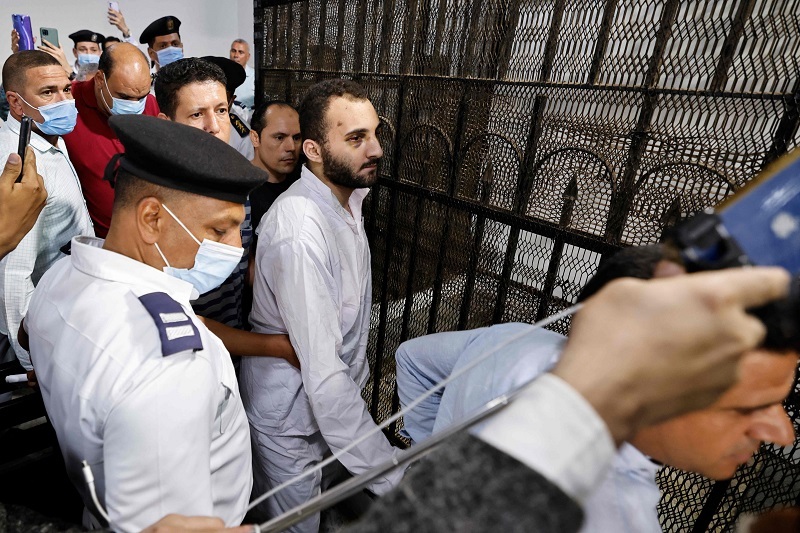Mohamed Adel, a 21-year-old student at Mansoura University in Egypt, murdered the woman he loved, Naira Ashraf, on June 20. He met Naira at the university and fell in love with her. However, Naira didn’t return his affection. The rejection led to the brutal killing of the girl.
Millions of Egyptians have been following the case since the videos of Naira’s murder went viral online. The brutal murder of the girl highlights a danger to women.
The Mansoura Criminal Court on Tuesday sentenced the murderer of Naira Ashraf to death by hanging. The court also set the session for July 6 to read the final verdict.
After the incident, Egyptian President Abdel-Fattah al-Sissi launched a public campaign to protect women’s rights in the country.
Keep Reading
Why did Mohamed Adel kill her?
Mohamed Adel was hurt when the girl refused her proposal. According to various sources and media reports, on the advice of his friends, Mohamed Adel began stalking her wherever she went and started sending her threatening emails. The Muslim Brotherhood, a Sunni Islamist religious group in Egypt, might have encouraged the young man to kill the girl. Many people often blame the group for incitement and encouraging attacks on women.
Muslim Brotherhood often carries out attacks against women, police personnel, officers and facilities in Egypt. They also threaten women to make them refrain from performing their work.
Muslim Brotherhood
The Muslim Brotherhood, founded in 1928 by Hasan al-Banna, was initially conceived of as a social movement seeking to re-Islamise Egypt. However, they focus mainly on women in Egypt. The group does not like the Western cultural hegemony. The group often criticises women for the way they dress. The group also thinks that women have no right to make a decision.
During the human rights review of Egypt at the UN Human Rights Council in 2019, the head of the National Council for Women said that under the rule of the Muslim Brotherhood, women faced marginalisation and discrimination in the country.
Youth revolutionary movements, women’s NGOs and coalitions often criticise the Muslim Brotherhood for not making streets safe for women who are exposed to sexual harassment daily. Most Egyptians have blamed a perceived sense of an increase in sexual harassment because of the group.
The few offshoots of the Muslim Brotherhood—Hamas and Liwa al-Thawra—have already been designated as terrorist organisations. Saudi Arabia has already banned the Muslim Brotherhood on their territory and supported counter-revolutionary forces in Egypt.

